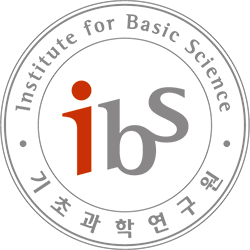
- This event has passed.
Systems pharmacology towards personalized chronotherapy
October 27, 2021 @ 5:00 pm - 6:00 pm KST

This talk will be presented online. Zoom link: 709 120 4849 (pw: 1234)
Abstract:
Chronotherapeutics- that is administering drugs following the patient’s biological rhythms over the 24 h span- may largely impact on both drug toxicities and efficacy in various pathologies including cancer [1]. However, recent findings highlight the critical need of personalizing circadian delivery according to the patient sex, genetic background or chronotype. Chronotherapy personalization requires to reliably account for the temporal dynamics of molecular pathways of patient’s response to drug administration [2]. In a context where clinical molecular data is usually minimal in individual patients, multi-scale- from preclinical to clinical- systems pharmacology stands as an adapted solution to describe gene and protein networks driving circadian rhythms of treatment efficacy and side effects and allow for the design of personalized chronotherapies.
Such a multiscale approach is being undertaken for personalizing the circadian administration of irinotecan, one of the cornerstones of chemotherapies against digestive cancers. Irinotecan molecular chronopharmacology was studied at the cellular level in an in vitro/in silico investigation. Large transcription rhythms of period T= 28 h 06 min (SD 1 h 41 min) moderated drug bioactivation, detoxification, transport, and target in synchronized Caco-2 colorectal cancer cell cultures. These molecular rhythms translated into statistically significant changes according to drug timing in irinotecan pharmacokinetics, pharmacodynamics, and drug-induced apoptosis. Clock silencing through siBMAL1 exposure ablated all the chronopharmacology mechanisms. Mathematical modeling highlighted circadian bioactivation and detoxification as the most critical determinants of irinotecan chronopharmacology [3]. The cellular model of irinotecan chronoPK-PD was further tested on SW480 and SW620 cell lines, and connected to a new clock model to investigate the feasibility of irinotecan timing personalization solely based on clock gene expression monitoring (Hesse, Martinelli et al., under review).
To step towards the clinics, on one side, mathematical models of irinotecan, oxaliplatin and 5-fluorouracil pharmacokinetics were designed to precisely compute the exposure concentration of tissue over time after complex chronomodulated drug administration through programmable pumps [4]. On the other side, we aimed to design a model learning methodology predicting from non-invasively measured circadian biomarkers (e.g. rest-activity, body temperature, cortisol, food intake, melatonin), the patient peripheral circadian clocks and associated optimal drug timing [5]. We investigated at the molecular scale the influence of systemic regulators on peripheral clocks in four classes of mice (2 strains, 2 sexes). Best models involved a modulation of either Bmal1 or Per2 transcription most likely by temperature or nutrient exposure cycles. The strengths of systemic regulations were found to be significantly different according to mouse sex and genetic background.
References
1. Ballesta, A., et al., Systems Chronotherapeutics. Pharmacol Rev, 2017. 69(2): p. 161-199.
2. Sancar, A. and R.N. Van Gelder, Clocks, cancer, and chronochemotherapy. Science, 2021. 371(6524).
3. Dulong, S., et al., Identification of Circadian Determinants of Cancer Chronotherapy through In Vitro Chronopharmacology and Mathematical Modeling. Mol Cancer Ther, 2015.
4. Hill, R.J.W., et al., Optimizing circadian drug infusion schedules towards personalized cancer chronotherapy. PLoS Comput Biol, 2020. 16(1): p. e1007218.
5. Martinelli, J., et al., Model learning to identify systemic regulators of the peripheral circadian clock. 2021.

